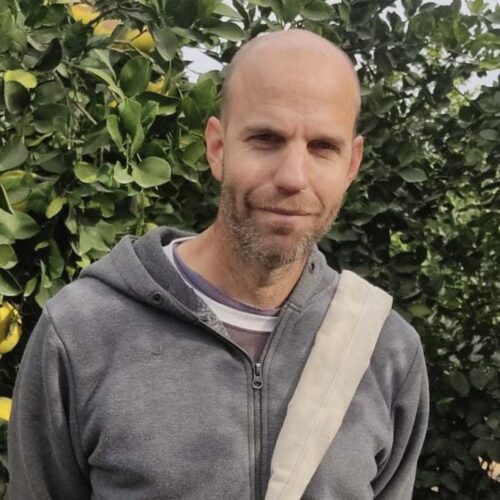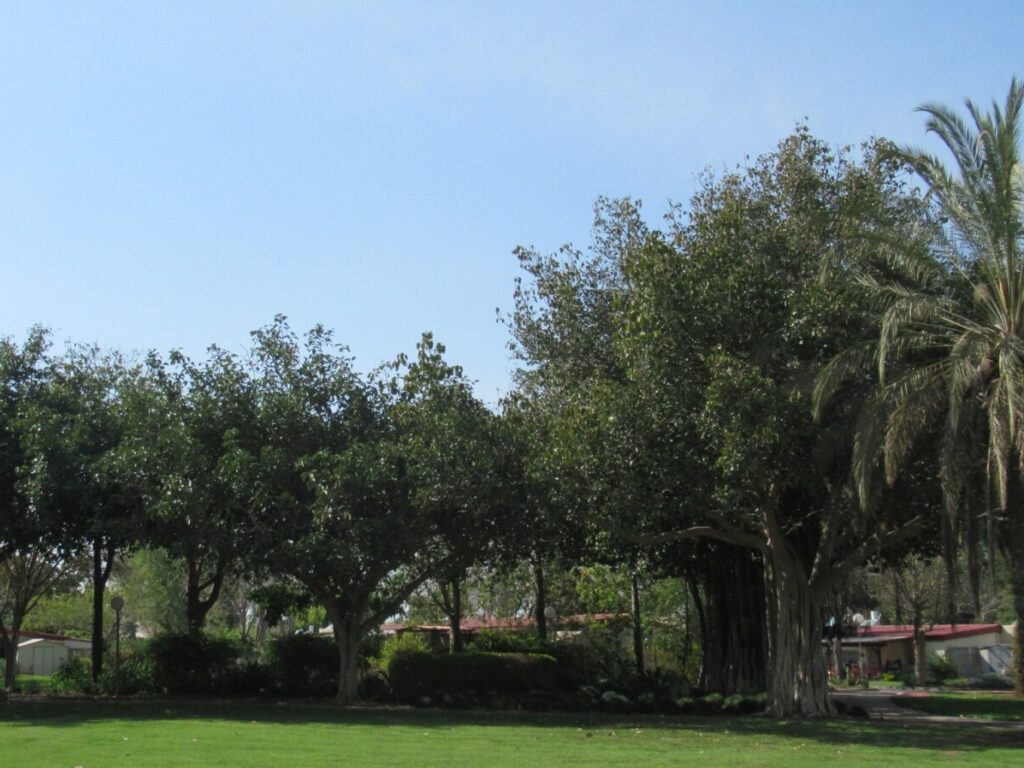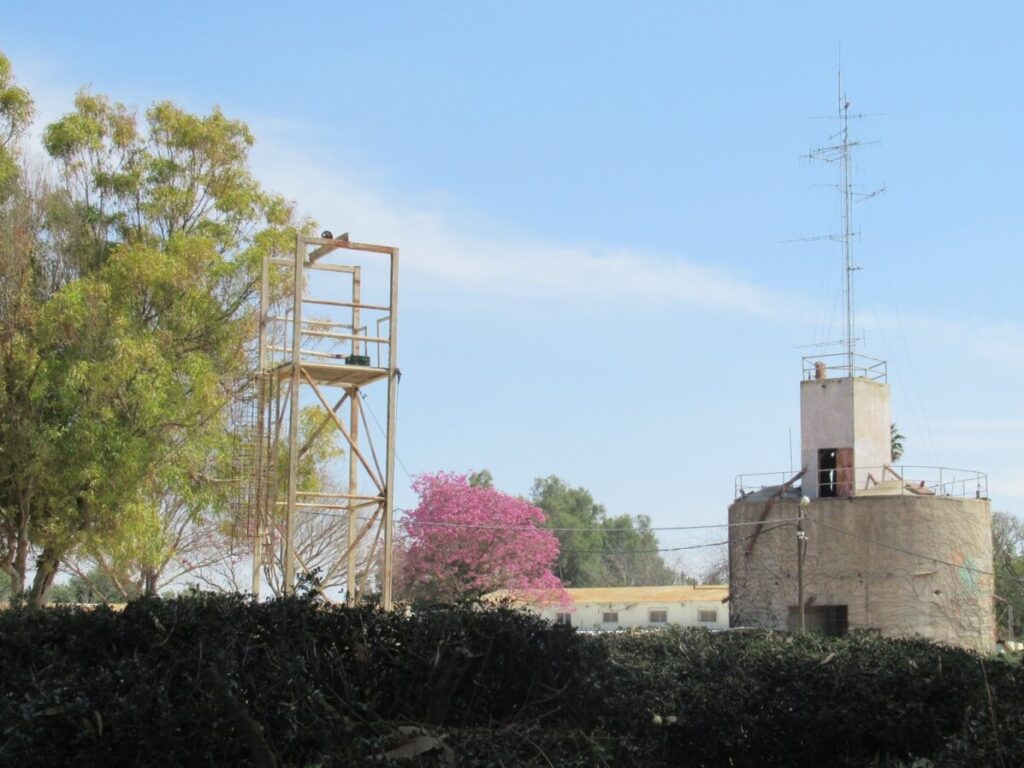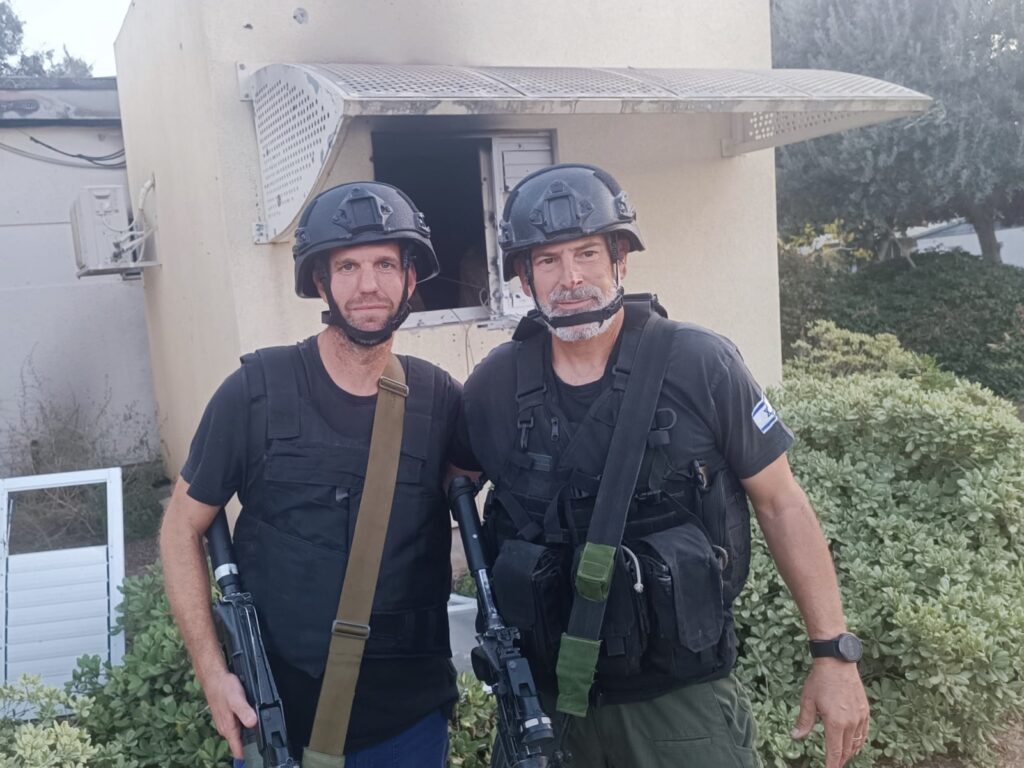Kibbutz Re’im was saved by quick-thinking civilians who fought off Hamas fighters.
We fought off about 20 terrorists, ending their wave of horror. Now numbering seven people, we split ourselves into four groups and ran to the burning houses.
- 2 years ago
December 22, 2023

RE’IM, Israel – On October 7, 2023, I was jolted awake by the sound of sirens in the kibbutz. We quickly ran to the safe room which doubles as my children’s room. The non-stop and loud explosions seemed worse than anything I heard before.
Simultaneously, I heard rockets and shots from weapons filling the air. It became clear to me that my quiet kibbutz was under attack. I quickly grabbed my weapon from the safe and ran out.
Read more stories on the Isreal-Palestine war at Orat World Media.
In Re’im, only six people had guns as part of the rapid response team. We all headed to the west side of the kibbutz to wait for the terrorists. We anticipated encountering maybe two or three militants, or in a worst-case scenario, up to 10. However, we saw many more Hamas soldiers than we imagined, riding in pickup trucks and wielding RPGs.
This fight would last for hours, not minutes. Hamas accessed our kibbutz from the west as anticipated, after they crossed through the kibbutz before ours. We had a singular task: fight them and save our community.
We lured the terrorists into empty buildings to buy more time, as we saved residents
Splitting into three groups, my friend and member of the rapid response team Harel Oren went to the south side of the kibbutz. Quickly, we took up spaces along the last line of houses where the terrorists approached.
Arriving before them, we started shooting, aiming at the gaps between the houses. We hoped to confuse them and make our numbers seem larger. Perhaps they would think every house contained armed residents. We knew they had a mission to destroy our homes and kill as many people as possible.
Residents in the houses remained in their safe rooms but some houses sat empty. We knew which homes were empty, so we tactically directed the terrorists to them to avoid any human harm. As we continued shooting from different directions, we successfully deceived Hamas into believing we had people hidden everywhere.
We wanted them to go into the empty houses and they did. They began shouting, looking for clinics and playgrounds, but they found no one. In that moment, I knew we won, and the people in the kibbutz would come to no harm.
Attracted by smoke from the houses they set ablaze, we ran to different spots. We had no time to plan, having endured two hours of intense fighting already. Moments later, we returned to our first spot because it offered a better view of them.
After saving our kibbutz, we headed to the neighboring one
During the fighting, we remained careful not run out of ammunition. We tried making a connection with our unit and finally, through a member of the rapid response team, four police officers arrived to join us. Re’im is the closest kibbutz to the west bank, and we fought off about 20 terrorists, ending their wave of horror. Now numbering seven people, we split ourselves into four groups and ran to the burning houses.
The occupants survived but were terrified. We helped them out of the burning homes and increased our number to 12. The terrorists turned on their heels and ran from the kibbutz. Seeing them leave, we moved to another neighborhood in the north where about 60 Hamas terrorists launched an attack.


They were inside houses, clinics, and parks, killing volumes of young people, children, and women. As they moved through, Hamas burned down houses along the way. We tried to save some of the young people who fled to the kibbutz from the music festival where the attack began.
These first deadly hours of the attack became a massacre; I lack the words to describe it. Hamas came to destroy our people, our property, and our values and morals. They invaded the place where I chose to live, raise my children, and grow old. The kibbutz is where we work, play, and educate. The terrorists came into our beautiful life and destroyed everything in their path.
I took up a weapon to fight for my life, protect my kibbutz, and preserve our culture
I took up my weapon that day to fight for my life and that of my people; to stand for my values and for a free world. At a time when our urgent desire to make the world and our kibbutz a beautiful place, we faced horror. My people, we do not kill. We spread love and peace. We wish for people to enjoy themselves and live happily.
We must win this war, but we do not want to win by killing people. We want to win by remaining true to our values and our culture. When the war ends, we will put down our weapons and continue to create a better world. For now, we fight away from our homes and the communities we nurtured. The kibbutz sits empty, and we have become wanderers.
Not long ago, we tended to our beautiful gardens, greeted guests in our homes, and chatted about life. Now, we live in tiny hotel rooms. I hope this new reality comes to an end soon.
I long to return to the good life and the peace and happiness we one enjoyed
The challenge of my generation will be to rebuild. As a people, we will rebuilt the kibbutz – not just Re’im but all of the communities. We know the task will be difficult, but it will include an entire nation. Working together, we will rebuild agriculture, schools, and neighborhoods. We have to.
I often wonder why the military let this happen, but I have to focus on the future. That sense of victory can only come when I see my children play again; when my family converges on our home and the kids ride their bicycles. When that day comes, we will continue to do what we do – grow as good human beings together.
Those of us who live in the kibbutz do not believe in violence. We teach our children that one day there will be peace. We believed it then and we believe it now. My people have nothing against any other religion or culture. When I say we will win, I mean our way of life will win. Together with my neighbors, we will recreate a space filled with love and peace, despite what we have been through.
































































































































































































































































































